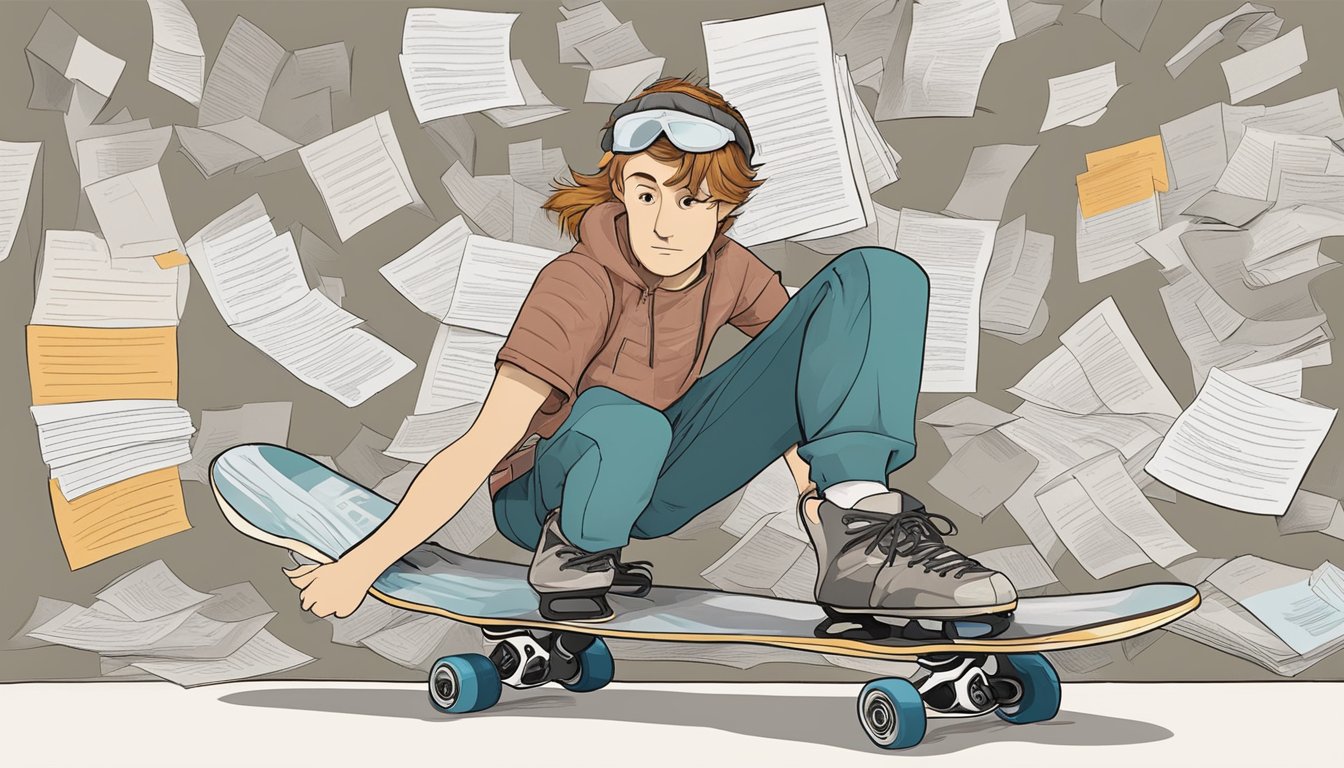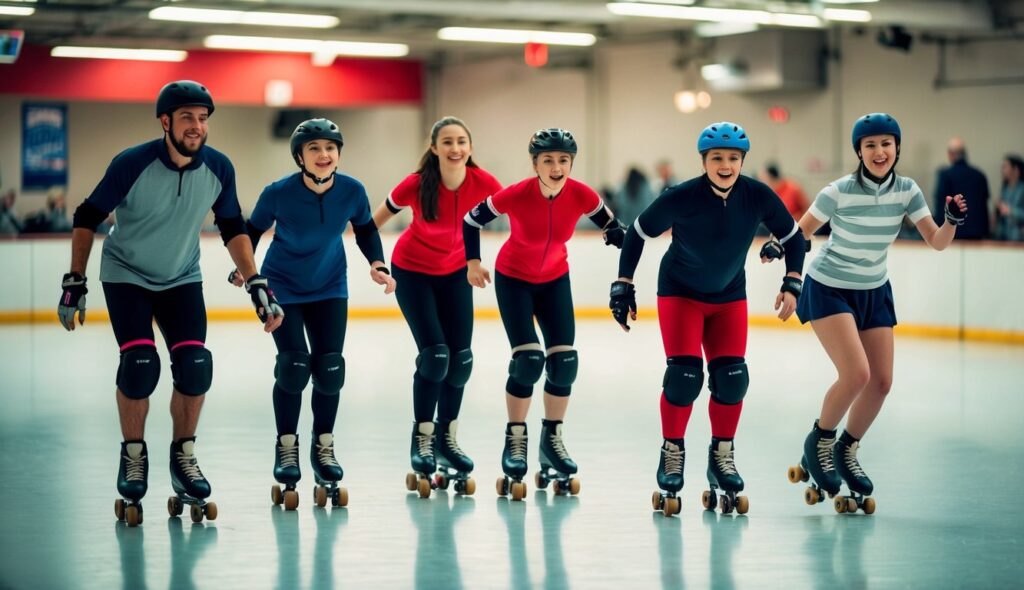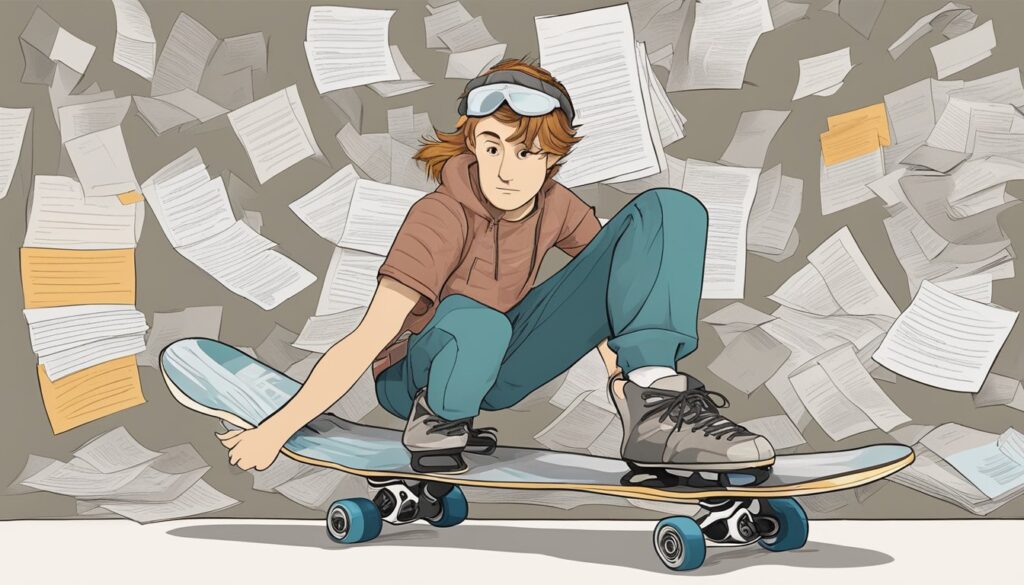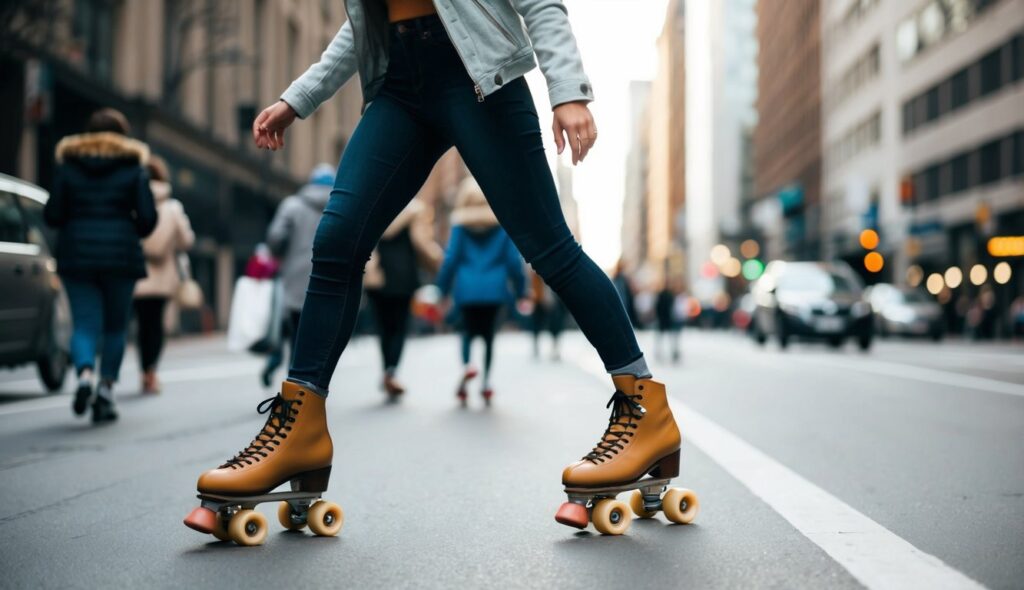110 Interview Questions Skating Player: Insights for Aspiring Athletes

Are you preparing for a skating player interview or just curious about what insiders might ask? You’re in the right place. This post covers 110 essential interview questions for Skating Player that will help you to prepare for an interview.
Whether you’re the one being interviewed or the one conducting it, these questions will deepen your insight into the world of skating.

These questions cover everything from basic skills to advanced strategies, ensuring you are ready for any conversation. They explore both the personal and professional sides of a skater’s life. You’ll find questions about training routines, mental preparation, and even tips on dealing with competition stress.
Understanding these areas will help you feel more confident and informed. Each question is designed to prompt thoughtful responses, giving you a clearer picture of what it means to be involved in skating at a professional level. Dive into this set of questions to enrich your skating knowledge and experience.
Understanding the Sport of Skating
Skating includes various styles and disciplines. Each has its own rules and techniques. Knowing which type interests you can guide your focus in training and skill improvement.
Skating Disciplines
Ice Skating: This takes place on ice, such as figure skating or speed skating. It involves intricate footwork, spins, and jumps. Ice skaters often compete in both solo and pair events. Understanding edge control and balance is crucial.
Inline Skating: Often seen in skate parks, this style uses rollerblades. It’s popular for both recreational and aggressive styles. Inline skating can be a stepping stone to a career in extreme sports.
Roller Skating: Done on four wheels, either quad or inline skates. It’s used in artistic skating, and speed roller sports. Roller skating emphasizes rhythm and coordination, which are key skills for professional skaters.
Consider what type of skating fits your interest. Whether for fun or a career, each discipline offers unique challenges and rewards in the sports industry.
Preparing for a Skating Career

To excel in a skating career, you need a strong training program, manage life and skating duties, prevent injuries, maintain fitness, and develop skating techniques.
Training Regimen for Skating
Creating the right training routine is essential.
Start with setting clear goals: short-term and long-term. Training sessions should include time on the ice, working on specific skills and routines. Generally, allocate time for off-ice training as well. Off-ice exercises like stretching, strength training, and agility drills can improve your balance and flexibility.
Daily practice is common, but rest days are important, too. Pay attention to your body’s signals and adjust training as needed. Regularly consult with a coach to keep your schedule effective and to address any changes that may be necessary.
Balancing Skating and Life
Balancing both skating and personal life can be challenging.
Time management is the key. Create a schedule that includes training, work, school, and relaxation time. Use planners or digital calendars to keep track of tasks and deadlines. Prioritize tasks to ensure you accomplish the most important things first.
Maintain social connections with friends and family for emotional support. Incorporate activities that help you unwind, like reading or listening to music. Remember to set aside personal time to rest and recharge your mental energy.
Injury Prevention Strategies
Injury prevention should always be a priority. Start with proper warm-ups before each session.
Stretching helps improve flexibility and reduce muscle tension. Wearing the right equipment that fits well is also crucial for safety. Make sure your skates, helmets, and pads are in good condition.
Listen to your body. If you feel pain or discomfort, address it immediately.
Physical Fitness and Skating
Physical fitness supports your skating abilities. A balanced diet fuels your body, providing the energy needed for training and performance.
Focus on foods rich in proteins, carbohydrates, and healthy fats. Hydration is also vital; drink enough water every day, especially before and after skating sessions.
Include exercises like cardio, strength training, and flexibility routines in your fitness plan. Cardio improves endurance, while strength exercises build muscles. Flexibility routines can enhance your range of motion. Consistent fitness work can maintain overall health and support your skating career.
Mastering Skating Techniques
Mastering skating techniques takes dedication.
Focus on technical skills such as jumps, spins, and edges. Break down each move into smaller parts and practice each step. Use mirrors or video recordings to analyze your movements and improve.
Work with a coach who can provide expert guidance and corrections. Repetition is crucial in learning, so practice each technique regularly.
Combine these technical sessions with creative routines to enhance your style and presentation on the ice.
Nutrition and Health in Skating

Proper nutrition and health practices are essential for skaters to excel. Maintaining energy, strength, and agility requires a balanced diet tailored to their needs.
Understanding Nutritional Needs
Knowing your nutritional needs is key to optimizing your performance. As a skater, you burn lots of calories, requiring a diet high in energy-dense foods but balanced.
Calcium and Vitamin D support bone health.
Consume dairy products or fortified alternatives. Don’t overlook iron-rich foods like spinach and green veggies, which help maintain energy levels by transporting oxygen to your muscles.
Ensure you have a varied diet to get all necessary vitamins and minerals. A registered dietitian specializing in sports can tailor a plan for you.
Awareness and knowledge of what you eat directly affect how well you perform on the ice. Remember, what you put into your body matters just as much as how you train.
List of 110 Interview Questions for Skate Players

- What inspired you to start skating?
I was inspired by watching the Winter Olympics and seeing the graceful movements and speed. - How do you stay motivated during tough training sessions?
I focus on my goals and remember that each session brings me closer to achieving them. - Can you describe your skating style?
I have a dynamic style that combines speed with smooth transitions. - What is your favorite skating memory?
Winning my first regional competition was unforgettable. - How do you handle pressure during competitions?
I focus on my routine and stay calm with deep breathing techniques. - Who is your role model in the skating world?
Michelle Kwan has always been my inspiration due to her grace and dedication. - How do you balance school and skating?
I create a schedule, prioritizing my time efficiently. - What’s the biggest challenge you’ve faced in skating?
Overcoming an injury taught me resilience and patience. - How do you maintain patience when learning new skills?
I break down skills into small steps, celebrating each achievement. - What role does emotional intelligence play in your skating?
It helps me manage my emotions and stay focused during stressful times. - How do you resolve conflicts with your teammates?
Open communication and understanding are key to resolving issues swiftly. - What is your favorite skating routine?
- How do you warm up before practices?
- What are your long-term goals in skating?
- How do you handle setbacks or failures?
- Can you describe your coaching style?
- What is the most essential quality in a skating coach?
- How do you adapt to different coaching styles?
- What do you enjoy most about skating?
- How do you celebrate after a win?
- What’s the best advice a coach ever gave you?
- How do you keep your skills sharp during the off-season?
- Why is teamwork important in skating?
- How do you handle missteps during a routine?
- What music inspires your routines?
- How do you stay physically fit outside of skating?
- What are your pre-competition rituals?
- How do you set your skating goals?
- How does skating affect your personal life?
- What do you learn from watching other skaters?
- How important is nutrition in your training?
- What’s your favorite thing about competitions?
- How do you prepare for a new routine?
- How do you stay focused before a big performance?
- What’s your least favorite aspect of training?
- How do you deal with injuries?
- What are your favorite off-ice activities?
- How does mental preparation factor into your success?
- What is your favorite piece of equipment?
- How has your skating evolved over the years?
- What role does music play in your performances?
- How do you adjust to new environments at competitions?
- What do you wish more people knew about skating?
- How do you unwind after a long day of training?
- What sacrifices have you made for skating?
- How do your family and friends support your skating?
- Do you have any skating traditions?
- What motivates you to keep improving?
- How do you handle criticism from judges or coaches?
- What other sports do you enjoy?
- How do you stay injury-free?
- What is your proudest achievement in skating?
- How do you involve yourself in the skating community?
- What does a perfect skating day look like for you?
- How do you incorporate feedback into your training?
- What mental strategies do you use during competitions?
- How do you use visualization in preparation?
- What’s your go-to snack before practice?
- What is the biggest lesson skating has taught you?
- How do you handle public recognition?
- What’s your greatest skating influence?
- When did you fall in love with skating?
- How do you stay positive during challenges?
- What’s your next big goal in skating?
- How do you take care of your skates?
- What advice would you give to new skaters?
- How do you encourage young athletes?
- What do you focus on most during training?
- How do you keep up with skating trends?
- How do you recover after intense training?
- What’s the most rewarding part of being a skater?
- How do you stay engaged in a long training season?
- How do you choose your competition outfits?
- What’s your favorite skating move?
- How do you incorporate technology into training?
- What’s your favorite thing about your coach?
- How do you deal with mental blocks?
- How important is support from fellow skaters?
- What excites you most about the future of skating?
- What’s your strategy for competition day?
- How do you adapt your training for different competitions?
- What are the core values of a successful skater?
- How do you balance creativity and technique in routines?
- What is your signature move on the ice?
- How do you prepare mentally before hitting the ice?
- How do you handle skating under pressure?
- What’s your favorite off-ice exercise?
- How do you manage competition nerves?
- What’s the best part of being part of a skating team?
- How do you keep your skating fun?
- How do you incorporate dance into your routines?
- Where do you hope skating will take you?
- How do you support your teammates?
- What’s a typical training day like for you?
- How do you use social media in your skating career?
- What’s your most challenging skating move?
- How do you react to unexpected changes in your routine?
- What’s your favorite skating event of the year?
- How do you balance training with downtime?
- What’s your favorite post-competition treat?
- How do you stay connected with fans?
- What’s your strategy for improving skills?
- How does patience benefit you in skating?
- What’s the most inspiring thing a fan has done for you?
- How do you improve your emotional intelligence on the ice?
- What’s the best part of skating in your city?
- How do you manage your time around skating commitments?
- How do you stay humble after a win?
- What’s the biggest lesson from competition failures?
- How do you inspire others through your skating?
Frequently Asked Questions for Skating Player

As a skating player, training routines, challenges, mental preparation, inspiration, and balance are critical aspects playing an integral role in your career. Advising young aspiring skaters forms a part of the guidance shared.
Can you walk us through your daily training routine?
Your daily training routine might include warm-ups, on-ice practice, and strength training. Each session typically focuses on improving specific skills like jumps, spins, or footwork.
It’s crucial to have a balanced diet and enough rest to keep your body in top form.
What has been the most challenging moment in your skating career?
You might face setbacks like injuries or tough competition losses. These challenges test your perseverance and dedication.
Learning from each experience, staying motivated, and having a solid support system can help you overcome these obstacles.
How do you prepare mentally before a competition?
Mental preparation often involves visualization and positive thinking. You focus on your routines and block out distractions.
Breathing exercises or listening to music might also help you stay calm and concentrated before taking the ice.

What inspired you to start a career in skating?
Your inspiration may come from watching your favorite skater or participating in a local skating show. Childhood interest often grows into a passion through years of practice, competitions, and the joy of performing on ice.
How do you balance your practice schedule with your personal life?
Balancing practice with personal life requires good time management. Prioritize tasks and make a flexible schedule.
Communicate with family and friends to keep them in the loop so you can maintain healthy relationships while pursuing your skating goals.
What advice would you give to young athletes aspiring to become professional skaters?
Encourage young skaters to practice consistently and stay dedicated. Emphasize the importance of finding a good coach and setting realistic goals.
Remind them to enjoy the journey and learn from both successes and failures.
All the Best !






